Toulene-free is Siegwerk's green card
The India operations of Siegwerk recently went toluene-free. Ashish Pradhan tells Ramu Ramanathan how Siegwerk with a futuristic outlook is galloping on the road to success
25 Jan 2018 | By Ramu Ramanathan
Ashish Pradhan, CEO, Siegwerk India had made the announcement at the International Packaging Conclave in August, during PackPlus 2017 in New Delhi that, "Siegwerk has a strong commitment to safe inks for all kind of applications and hence committed to toluene-free operations in India. Siegwerk Bhiwadi site will be toluene-free and will not use toluene in its manufacturing facility."
When he met the WhatPackaging? team in Mumbai, he only confirmed their commitment by saying “We are now Toulene Free”
With this, Siegwerk India joins the Siegwerk global ranks in producing toulene-free inks. Pradhan is delighted! This is because zero exposure to toulene for his team, plus quality inks that are compliant.
He points out, "Our Bhiwadi factory has adequate controls to make sure compliant inks reach the customer. Adopting to the toluene free operations also serves as an advantage to rule out any possibility of cross contamination of our toluene free inks with toluene at our manufacturing facility."
Adhering to standards in Bhiwadi
Pradhan explains how, "Around the world, brand owners have set global safety standards and policies for their products." With the FSSAI upping the ante in India, more and more brand owners, global, Indian and regional will adhere to these standards. Pradhan points out “even before, FSSAI, at Siegwerk, there was a strong commitment to apply the exclusion policy, also outside Europe, developed and defined by EuPIA (European Printing Ink Association) and adhere to the principles of GMP (Good Manufacturing Practice) on a global scale."
A tour of the Bhiwadi plant shows how Siegwerk has harmonized its approaches, apart from Product Safety and Regulatory (PSR), which include: occupational safety, plant safety and fire protection. These are all components of Siegwerk’s overall sustainability platform.
The Siegwerk factory in Bhiwadi operates on "the Business Unit (BU) concept." It has six BUs. Flexible packaging is the biggest at the global level. This is followed by narrow-web, sheetfed, liquid food, paperboard and tobacco. BU and technology are part of the setup. The BU head handles both – sales and technology. The entire manufacturing factory is modular. This guarantees an efficient system and capability to manufacture various types of inks in India from master grinds to formulations.
In principle, in the manufacture of all products supplied by Siegwerk for NP&H (Nutrition, Pharma & Hygiene) applications globally, toluene or raw material containing toluene is not used as an intentionally added ingredient.
What is toulene?
Toluene has earned disrepute globally for its bad toxicological profile. The adverse effects make it an issue related to consumer safety, occupational safety and environmental safety. Due to its developmental toxicity toluene is classified as CMR category 2 (suspected of damaging the unborn child). Furthermore, residual toluene in packaging also impacts the organoleptic properties of the product thus leading to food quality and safety issues.
The unfavourable toxicological properties of toluene is the reason why global brand owners like Nestle, Perfetti, Ferrero, Wrigley’s etc. have restricted or completely banned the usage of toluene in ink formulations intended for food packaging material of their products.
When asked, if the toulene-based gravure market in India will opt for toulene free inks, Pradhan said, "It has begun. General Mills and Ferrero are already 100% toulene free."
Talking about the technology adoption, Sukhdev Saini of General Mills says, “Going toluene free came with its own set of challenges. The three major factors which we considered was being able to map the supplier readiness and their capability to supply, the second leg was testing of inks and its compatibility with the final packaging material and finally the cost implications, if we adapt to toluene free inks. Once this was sorted, we adopted these inks and are 100% toluene free today.”
Growth area
Pradhan is bullish about 2018. He says, packaging and labels are growing consistently, and regulatory changes will be an important area of emphasis.
"With legislation related to food packaging safety becoming tighter, we expect to see brand owners and converters in India emphasize on low-migration systems and technology". One of the leading trends is the growing demand that is driven by brand owners desiring safety and health standards as well as effect varnishes and special finishing of their product packaging. These opportunities will further drive growth of printing ink technologies, allowing packaging manufacturers to react more quickly to specific customer requirements.
This is the reason Ashish Pradhan has been engaging with brand managers and trying to assess the risk for packaging material. In Delhi, he hosted a panel with FSSAI official Kumar Anil, top brands which included Nestle India’s Barun Banerjee, General Mills’ Sukhdev Saini, Glaxo Smithkline’s Saikat Acharya, and Sun Pharma’s Rahul Bhargava. He continues to engage with brands constantly so as to ensure transparency.
What has he gleaned thus far?
Pradhan says, brands are showing a lot of increasing interest in PVC-, BPA- and toluene-free inks - and therefore this will shape the future development in ink technology.
He adds, "The speed of flexible packaging printing presses continues to increase, requiring new formulation demands on traditional ink technology. In this sense, we will see a switch from conventional UV to migration-optimized UV inks during the coming years. The implementation of low energy curing will gain pace while LED UV curing will continue to be one of the growth drivers in the UV ink and printing industry."
The future
Pradhan concludes, "Yes, there is a lot more interest today than there was three years ago. We see many Asian countries move towards compliant product safety and regulations. US, Europe and China have moved towards a completely toluene-free system. They are much ahead when you talk about strong norms against volatile organic compounds (VOC). That is the segment which India is moving towards. It might take a while to happen and probably by 2020 it will be done. There is an increasing interest in PVC-, BPA- and toluene-free inks and this will also shape the future development in ink technology. Besides, full PU (polyurethane)-based ink systems for gravure printing can be expected to address the interest of printers."
Pradhan said that looking at overall performance till date, 2017 has been a good year for Siegwerk. He said, "The last 12 months were a challenging time and we’ve been confronted with raw material cost increases along with the impact of demonetisation and GST. But we’ve continued with our portfolio transformation by focusing our efforts on the expansion of our core business of packaging printing inks. We’ve achieved solid growth in both sales and volume in the packaging segment and outperformed the overall market. Globally, we have already exceeded the USD 1 billion milestone in overall packaging ink sales."
With 5,200 employees in more than 30 countries, Siegwerk is a global leader in packaging inks. In India, the message from the man at the helm is crystal clear: Toluene Free.
Siegwerk's Bhiwadi factory - CEO speak
Siegwerk holds a strong commitment to the product safety profile of its products. We take utmost care to give safe and compliant inks to our customers as well as end-users. Siegwerk recognizes that cross –contamination of toluene (being a volatile contaminant) can not only happen at the converter's shop floor, but also at the ink manufacturer's end where toluene-based inks and toluene free inks are been manufactured in same facility. Hence, being a responsible partner in the packaging supply chain, Siegwerk decided to move to toluene free operations thereby ruling out the possibility of toluene cross contamination occurring at our facility. Siegwerk, with its strong commitment to safe inks for all kinds of applications, has gone far ahead than the market by committing to toluene free operations in India.


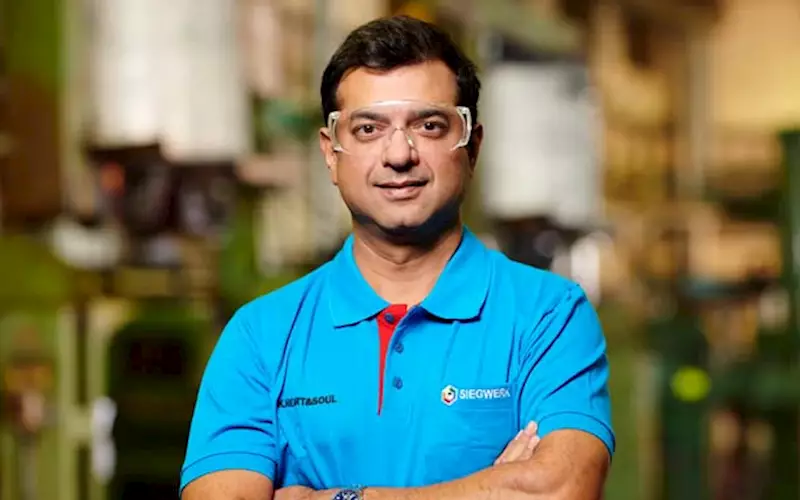
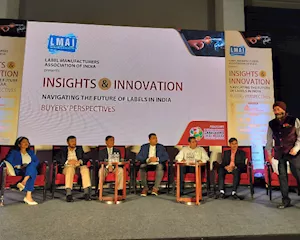
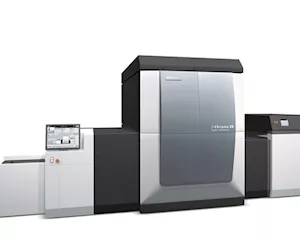
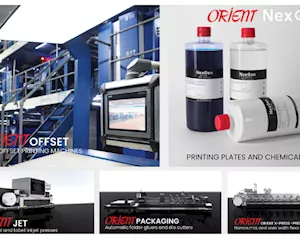
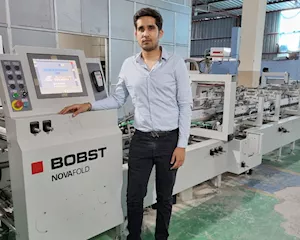
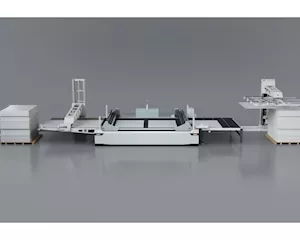






 See All
See All